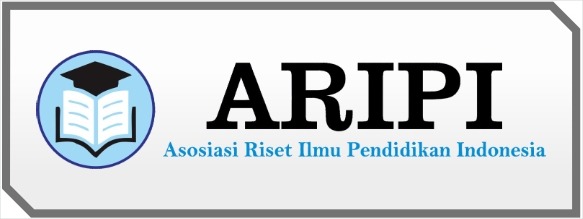Infrastructure and Innovation: Rethinking Digital Literacy for K-12 Learners
DOI:
https://doi.org/10.61194/education.v2i4.701Keywords:
Digital Literacy, K-12 Education, Teacher Digital Competence, Digital Infrastructure, Educational Policy, Inclusive Education, ICT IntegrationAbstract
In the wake of accelerating digital transformation, this study investigates how digital infrastructure, competency frameworks, and policy implementation influence digital literacy in K-12 education. The study employs a narrative review methodology, synthesizing findings from diverse literature databases including Scopus, Web of Science, and Google Scholar. Using keywords such as "digital literacy," "K-12," "ICT integration," and "teacher digital competence," studies were screened based on inclusion criteria focusing on infrastructure, pedagogy, and policy. The review reveals that access to robust digital infrastructure significantly correlates with enhanced student engagement and digital skill acquisition. Countries with well-developed digital ecosystems exhibit stronger outcomes due to government investment, teacher training, and integrated curricular reforms. In contrast, developing countries face persistent challenges such as unequal infrastructure distribution, policy misalignment, and limited professional development opportunities. Notably, the study challenges the assumption that individual resistance is the primary barrier, emphasizing instead the structural nature of these obstacles. Recommendations include strengthening policy frameworks, increasing investment in rural connectivity, and implementing scalable teacher training programs. The study underscores the necessity for adaptive, data-driven, and equity-oriented interventions to close the digital divide and promote inclusive educational transformation. The findings offer strategic insights for policymakers, educators, and researchers seeking to build resilient digital learning environments.
References
Aldrup, K., Carstensen, B., Köller, M., & Klusmann, U. (2020). Measuring teachers’ social-emotional competence: development and validation of a situational judgment test. Frontiers in Psychology, 11. https://doi.org/10.3389/fpsyg.2020.00892 DOI: https://doi.org/10.3389/fpsyg.2020.00892
Alarcón-Espinoza, M., García, P., & Anguera, M. (2023). Systematic observation of emotional regulation in the school classroom: a contribution to the mental health of new generations. International Journal of Environmental Research and Public Health, 20(8), 5595. https://doi.org/10.3390/ijerph20085595 DOI: https://doi.org/10.3390/ijerph20085595
Andersen, L., Basballe, D., Buus, L., Dindler, C., Hansen, T., Hjorth, M., ... & Slot, M. (2024). Infrastructuring digital literacy in K-12 education: A national case study. International Journal of Child-Computer Interaction, 42, 100697. https://doi.org/10.1016/j.ijcci.2024.100697 DOI: https://doi.org/10.1016/j.ijcci.2024.100697
Boechler, P., Dragon, K., & Wasniewski, E. (2015). Digital literacy concepts and definitions. In Handbook of Research on Cross-Cultural Approaches to Language and Literacy Development (pp. 228–246). https://doi.org/10.4018/978-1-4666-8200-9.ch011 DOI: https://doi.org/10.4018/978-1-4666-8200-9.ch011
Breakstone, J., McGrew, S., Smith, M., Ortega, T., & Wineburg, S. (2018). Why we need a new approach to teaching digital literacy. Phi Delta Kappan, 99(6), 27–32. https://doi.org/10.1177/0031721718762419 DOI: https://doi.org/10.1177/0031721718762419
Choi, E., Choi, Y., & Park, N. (2022). Blockchain-centered educational program embodies and advances 2030 sustainable development goals. Sustainability, 14(7), 3761. https://doi.org/10.3390/su14073761 DOI: https://doi.org/10.3390/su14073761
Donate-Beby, B., García‐Peñalvo, F., & Amo, D. (2024). Data literacy questionnaire for educators. 1–6. https://doi.org/10.1109/siie63180.2024.10604607 DOI: https://doi.org/10.1109/SIIE63180.2024.10604607
Hegestedt, R., Nouri, J., Rundquist, R., & Fors, U. (2023). Data-driven school improvement and data-literacy in K-12: Findings from a Swedish national program. International Journal of Emerging Technologies in Learning (iJET), 18(15), 189–208. https://doi.org/10.3991/ijet.v18i15.37241 DOI: https://doi.org/10.3991/ijet.v18i15.37241
Howard, P. (2015). Digital citizenship in the afterschool space: Implications for education for sustainable development. Journal of Teacher Education for Sustainability, 17(1), 23–34. https://doi.org/10.1515/jtes-2015-0002 DOI: https://doi.org/10.1515/jtes-2015-0002
Hu, Y., Nie, J., & Gu, X. (2022). From equity of opportunity to equity of development: A comparative analysis of large-scale online education in urban and rural K-12 schools in China during COVID-19. Chinese Education & Society, 55(6), 419–437. https://doi.org/10.1080/10611932.2023.2213602 DOI: https://doi.org/10.1080/10611932.2023.2213602
Höper, L., & Schulte, C. (2023). The data awareness framework as part of data literacies in K-12 education. Information and Learning Sciences, 125(7/8), 491–512. https://doi.org/10.1108/ils-06-2023-0075 DOI: https://doi.org/10.1108/ILS-06-2023-0075
Höper, L., & Schulte, C. (2024). Empowering students for the data-driven world: A qualitative study of the relevance of learning about data-driven technologies. Informatics in Education. https://doi.org/10.15388/infedu.2024.19 DOI: https://doi.org/10.15388/infedu.2024.19
Hutto, H., & Wheeler, M. (2023). Tribal and rural digital inclusivity: An examination of broadband access in two neighboring Great Plains states. First Monday, 28(4). https://doi.org/10.5210/fm.v28i4.12519 DOI: https://doi.org/10.5210/fm.v28i4.12519
Jeong, J., & Lee, Y. (2024). Development of data literacy competency system for K-12. International Journal on Advanced Science Engineering and Information Technology, 14(6), 2130–2140. https://doi.org/10.18517/ijaseit.14.6.12373 DOI: https://doi.org/10.18517/ijaseit.14.6.12373
Michaeli, T., Romeike, R., & Seegerer, S. (2023). What students can learn about artificial intelligence – Recommendations for K-12 computing education. In Informatics in Schools: Focus on Artificial Intelligence, 196–208. https://doi.org/10.1007/978-3-031-43393-1_19 DOI: https://doi.org/10.1007/978-3-031-43393-1_19
Nastiti, P. (2022). Assessing Indonesian parents' readiness of K-12 online learning accompaniment. 1–5. https://doi.org/10.1109/iraset52964.2022.9737823 DOI: https://doi.org/10.1109/IRASET52964.2022.9737823
Passarelli, B., & Angeluci, A. (2023). Media and information literacy among Brazilian K-12 teachers: A case study at Guarujá municipal education system. WMSCI 2023. https://doi.org/10.54808/wmsci2023.01.152 DOI: https://doi.org/10.54808/WMSCI2023.01.152
Siiman, L., Cortés, C., & Pedaste, M. (2014). Digital literacy for all through integrative STEM. In Proceedings of the 7th International Conference on Computer Supported Education (pp. 119–127). https://doi.org/10.1007/978-3-319-07482-5_12 DOI: https://doi.org/10.1007/978-3-319-07482-5_12
Tsarkos, A. (2024). Navigating educational justice in K-12 schools. In Handbook of Research on Advanced Research Methodologies for Educational Technology and Administration (pp. 159–175). https://doi.org/10.4018/979-8-3693-1614-6.ch009 DOI: https://doi.org/10.4018/979-8-3693-1614-6.ch009
Yang, X., Zhu, X., & Chen, D. (2023). Discourses regarding education governance in the digital age at K-12 level: Possibilities, risks, and strategies. Teaching and Teacher Education, 132, 104261. https://doi.org/10.1016/j.tate.2023.104261 DOI: https://doi.org/10.1016/j.tate.2023.104261






